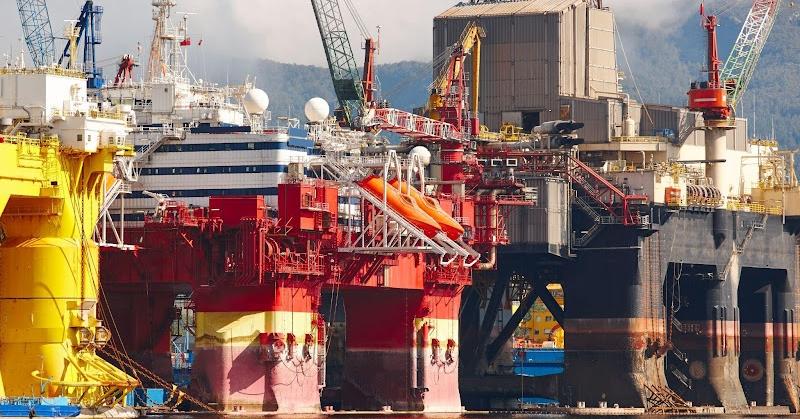Are you anxious about the future of the petroleum and natural gas industry? As the world’s demand for energy continues to expand, understanding the ever-changing world of this industry is crucial for businesses and consumers alike. Charles Mady analyzes the energy sector’s complaints and possibilities and consult how we can fuel a tolerable fortune.
What is the Petroleum and Natural Gas Industry?
Overview of the Industry
The petroleum and natural gas industry is vital in global power production and economic evolution. This industry involves exploring, extracting, refining, and distributing petroleum and natural gas resources. It is a complicated and connected network of organizations affected by different value chain steps.
An overview of this industry offers priceless insights into its history and effectiveness. Policymakers, investors, and stakeholders must comprehend the industry’s network, key players, and regulatory framework. The industry’s assistance to the profession, GDP, and energy safety, emphasizing its crucial role in meeting the world’s energy demands.
Major Players in the Industry
The petroleum and natural gas industry comprises of individuals who play a critical role in investigating, producing, and allocating these power resources. Some of the top players in the industry include ExxonMobil, Chevron, Royal Dutch Shell, BP, and Total. These organizations have a significant global presence and contribute much of the world’s oil and gas presentation.
They invest in advanced technologies and hire highly skilled experts to confirm efficient operations and maximize production capacities. These significant players actively participate in research and development initiatives to enhance extraction techniques and discover new reserves.
Current State of the Industry
Trends and Developments
The landscape of the petroleum and natural gas enterprise is constantly changing, with continuing movements and evolutions shaping its future. These include specialized improvements, such as incorporating artificial intelligence and mechanization in investigation and production procedures. Moreover, there is an improving priority on sustainability and environmental commitment as companies invest in renewable energy and work towards lowering their carbon footmark.
To remain ahead in this industry, participants must adopt these trends, adapt their techniques, and prioritize environmental and social commitment. In doing so, they can secure their success and contribute to a more endurable future.
Challenges and Opportunities
The current landscape offers different challenges and possibilities for the petroleum and natural gas enterprise. These include unstable oil costs, rising environmental problems, and the need to adapt to passages in renewable energy. However, these challenges also allow the industry to innovate and diversify. Funding for analysis and the creation of new technologies can overcome these problems, and efficiencies can be enhanced. The industry can secure long-term sustainability by adopting renewable energy sources and enforcing sustainable techniques. By understanding these problems and possibilities, the petroleum and natural gas industry can continue to fulfill its critical role in fueling the future while fulfilling environmental and social responsibilities.
Future of the Industry
As the world’s energy needs continue to increase, petroleum and natural gas businesses continuously develop to meet these needs. This section will closely examine the industry’s fortune and the key factors shaping it. From technical improvements to the shift towards renewable energy sources, analyzing the dynamic landscape of the petroleum and natural gas industry and its possible effect on the global energy need.
Technological Advancements
Technological advancements are a critical factor in shaping the future of the petroleum and natural gas sectors. These improvements have changed investigation, drilling, and extraction procedures, expanding efficiency and lowering environmental consequences.
For example, implementing advanced imaging techniques and data analytics has dramatically improved reservoir characterization, allowing companies to optimize production. Furthermore, automation and robotics have enhanced safety and minimized human involvement in hazardous operations.
Moreover, the continuous development of renewable energy technologies drives the industry’s transition towards cleaner and more sustainable practices. Embracing these technological advancements is crucial for the industry to maintain competitiveness and contribute to a greener future.
Shift towards Renewable Energy
The petroleum and natural gas industry is shifting towards renewable energy options. This difference is primarily inspired by the urgent need to reduce greenhouse gas emissions and manage the issue of global warming. Businesses within the industry heavily invest in analyzing and growing renewable technologies such as solar, wind, and biofuels while exploring opportunities in hydrogen and carbon capture technologies.
Environmental situations and the growing need for sustainable energy resolutions drive the shift towards renewable energy. Adopting renewable energy is vital for the future of the petroleum and natural gas industry.
Strategies for Success
Developing effective strategies is crucial for success in the petroleum and natural gas industry.
- Research: To formulate successful strategies and stay informed about market trends, emerging technologies, and regulatory changes.
- Diversification: Explore opportunities in renewable energy sources and new markets to reduce dependence on fossil fuels and increase chances for success.
- Efficiency: Optimize operations through technological advancements, such as automation and data analytics, to improve overall strategy effectiveness.
- Sustainability: Implement environmentally friendly practices and promote social responsibility for a more sustainable and prosperous future.
- Collaboration: Form partnerships with other industry players, governments, and local communities to drive innovation and address common challenges, leading to a more successful industry.
Environmental and Social Responsibility
The petroleum and natural gas industry is emphasizing environmental and social responsibility. By investing in sustainability initiatives and reducing their carbon footprint, companies are taking steps towards responsible practices in waste management, water usage, and community engagement.
By prioritizing these responsibilities, the industry contributes to a more sustainable future.

